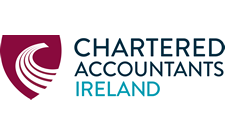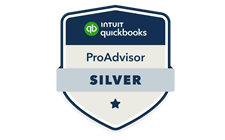No HICBC reform: a closer look
The 2024 Autumn Budget made headlines for a number of reasons, but behind the flagship announcements was an important confirmation that planned reforms to how families are subject to the child benefit clawback will be scrapped. What’s the full story?

Background
The high-income child benefit charge (HICBC) has been controversial since its introduction. For one thing, it is assessed on the higher earner, irrespective of whether they are the claimant. This has led to a number of instances where couples who don’t necessarily share financial information between them have been hit with unexpected bills and (in some cases penalties). HICBC has also been criticised for unfairly punishing single-income claimants because it only takes into account the higher earner’s income, not total household income.
Example. For 2024/25, A and B claimed child benefit of just over £2,300. B is currently on extended leave and did not work during the year. A is working full time and, with their annual bonus, have exceeded £80,000. HICBC will apply and clawback the £2,300 in full. C and D also claimed the same amount of benefit. However, both worked during 2024/25 earning just under £60,000 each. There will be no clawback, even though as a household their income is £40,000 higher than A and B.
Reform
The previous government acknowledged this problem, and announced that it would consult on how to reform the HICBC rules to base it on household income.
This plan has now been scrapped by the incoming government. Advise clients to review income sharing arrangements, e.g. rental income, savings, profit extraction, to preserve entitlement.
Instead, the government is focusing on improving collection of the charge. Employees subject to the charge will be able to pay it via a PAYE code adjustment instead of needing to complete a tax return from 2025/26. This will remove the risk of failure to notify and late filing penalties being applied for some claimants.
Related Topics
-
Simpler Recycling rules take effect
New rules on how workplaces must sort their waste and recycling have taken effect from 31 March. What are the key changes to be aware of?
-
New CGT reporting tool
Self-assessment returns aren’t set up for the change in capital gains tax (CGT) rates on the government filing system and will require a manual adjustment for 2024/25 to ensure the correct amount is paid. Why is there a problem and can a new online tool help?
-
MONTHLY FOCUS: THE ENTERPRISE INVESTMENT SCHEME QUALIFYING CONDITIONS
The enterprise investment scheme (EIS) is a generous collection of tax reliefs aimed at encouraging private investment into relatively young companies. In this Focus, we look at the qualifying conditions relating to the investor and the issuing company that must be met in order for a claim for relief to succeed.




 This website uses both its own and third-party cookies to analyze our services and navigation on our website in order to improve its contents (analytical purposes: measure visits and sources of web traffic). The legal basis is the consent of the user, except in the case of basic cookies, which are essential to navigate this website.
This website uses both its own and third-party cookies to analyze our services and navigation on our website in order to improve its contents (analytical purposes: measure visits and sources of web traffic). The legal basis is the consent of the user, except in the case of basic cookies, which are essential to navigate this website.